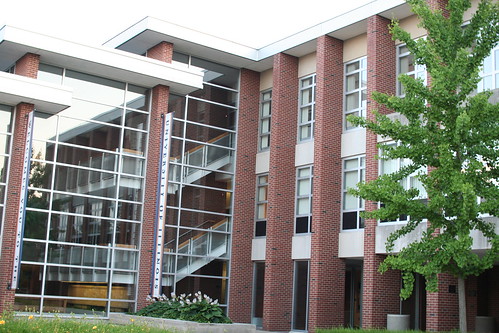In February of 2011, Villanova University School of Law revealed that “unidentified individuals” knowingly reported inaccurate admissions data, including the LSAT scores and grade point averages of entering classes, to the American Bar Association (ABA) and U.S. News and World Report for years prior to 2010. Subsequent to the investigation, Villanova fired or accepted the resignations of at least three admissions officials and a dean.
While it might seem like old news to some, the problem has again resurfaced – this time at the University of Illinois College of Law. This past September, the University posted a press release on its Web site stating that, during four of the past 10 years, the Law School had reported inaccurate LSAT scores and grade point averages for the entering classes to both the ABA and U.S. News and World Report. The inaccurate data was used to compute U.S. News and World Report’s “Best Law Schools” ranking for the 2010, 2011, and 2012 editions.
 |
Villanova Univ. was sanctioned for reporting inaccurate law school statistics to the A.B.A. and U.S. World and News Report. |
While the desire to provide misleading statistics may be due to the U.S. News and World Report law school rankings, which come out every year and have an inarguably strong influence on prospective law students, another factor might be the pressure universities, law schools, or deans put on their administrators. Nevertheless, guesses as to why employees of these institutions would knowingly inflate data would be mere speculation.
What has perpetuated this type of behavior is the fact that the ABA does not perform any regular auditing on self-reported law school statistics, with a representative only examining each school’s record as part of its accreditation visit every seven years.
 |
Univ. of Ill. has falsely reported statistics that have led to their #23 law school ranking. |
It has been suggested that the Law School Admissions Council should be the organization that reports these statistics in order to ensure accuracy. The Council is the organization responsible for administering the LSAT and operates the central assembly service, a centralized computer application that holds the records for every enrolled law student and is used by nearly all of U.S. law schools. So far, there are no plans for the Council to take over.
The ABA is reviewing proposed rule changes for institutions that engage in misleading admissions reporting. Although U.S. News and World Report did not alter any prior rankings, the ABA imposed sanctions on Villanova, mandated at least a two-year audit of the school’s reported statistics, and required Villanova to post a notice of censure on its Web site for the next two years. The University of Illinois has not been sanctioned.
The outcry surrounding this controversy has far exceeded the bounds of law school academia and has transcended into the general population. Not only have these institutions - the very institutions that champion the principles of honesty and ethics in order to cultivate the future lawyers of America - acted dishonestly and in bad faith to inflate rankings and perceptions; they have necessarily brought to light the greater ramifications of academic rankings and what effects they have on the institutions making them, the students attending these institutions, and the potential students using them in deciding what school to attend. Leading the outcry are groups and organizations, most notably an organization called Law School Transparency, that have recently developed in order to encourage the greater need for accuracy in reporting.
Law School Transparency, a non-profit organization that was formed in 2009 by two Vanderbilt Law School graduates, has sought to facilitate a more open system of rankings and reporting data by offering “consumer protection” to potential law students. The organization encourages the transparent flow of information so that prospective students pick law schools not just based on a law school’s annual ranking, but based on which school best matches their personal objectives. The organization also offers the “ABA Watch,” a program that strives to monitor the consumer information that law schools release to the public in order to better regulate law school reporting.
While these organizations certainly bring to light the necessity of monitoring statistics, there is no doubt that change must come from within the institutions that report these statistics.
 |
| Joe Campion |
“We at this institution always try to keep our mission in mind,” Campion said of the reporting process. “It’s about providing opportunities for individuals. That mission has been around before U.S. News and World Report.”
Campion also went on to say that, as Admissions Director, he strives to choose students by reading their files, and not merely data.
“Character is important,” Campion said. “Students may very well be making decisions based on law school rankings, but I hope they base their decisions on more than that.”
The potential ramifications of misleading reporting in this sphere are non-life-threatening. Students will continue to apply to and be accepted into the over 200 law schools we now have in the United States and these institutions will continue to produce great lawyers. But what is rocked at its very foundation is the idea that rankings somehow govern what kind of experience is available or what kind of lawyers these students will turn out to be. Sure, they give potential students a basis in discerning which institutions are most competitive - but as far as the experience, the quality of education and the soundness of professional standards go – these things clearly can’t be measured by numbers.
Dana Giallonardo is a Staff Writer for Juris Magazine. She earned her undergraduate degree from Lehigh University in 2010, where she majored in Journalism and minored in Communications and Creative Writing. While at Lehigh, Dana was an Assistant Editor on the Brown and White student newspaper. Dana will graduate from Duquesne University School of Law in June of 2013. She can be reached at Giallonardod@duq.edu.
